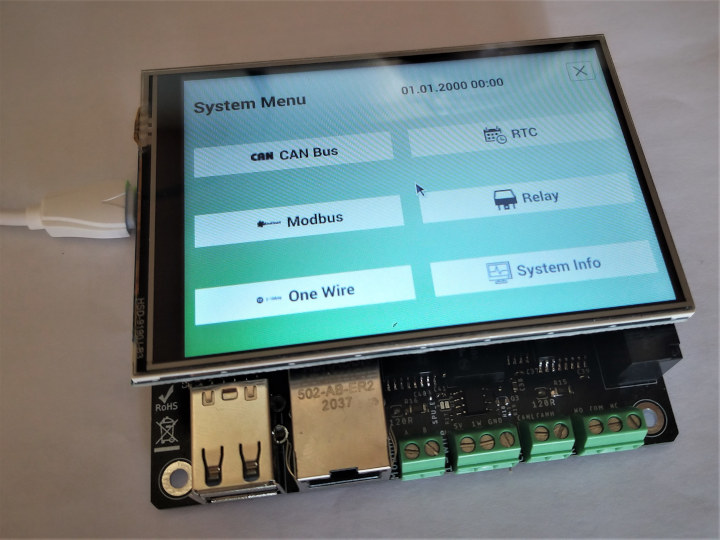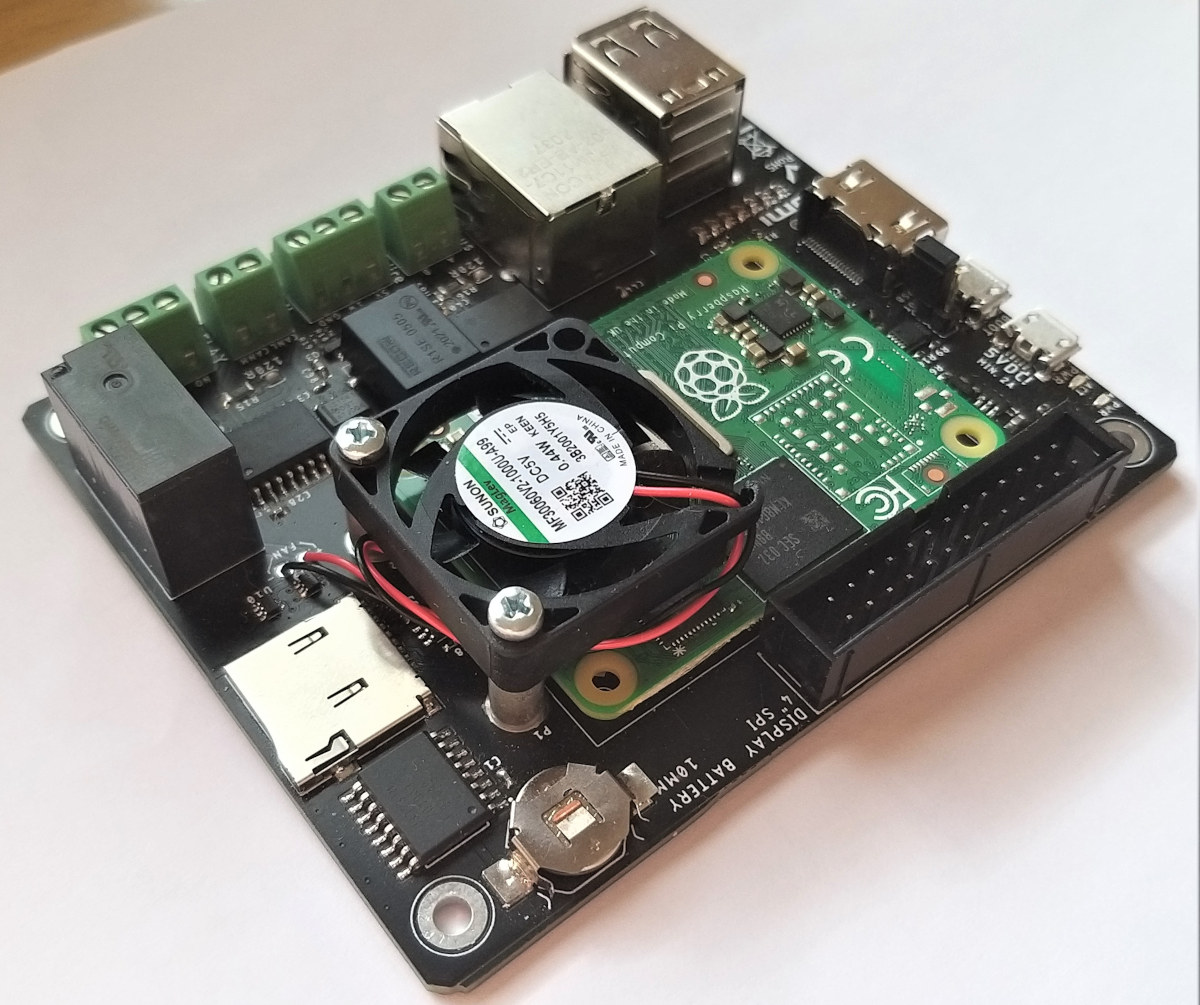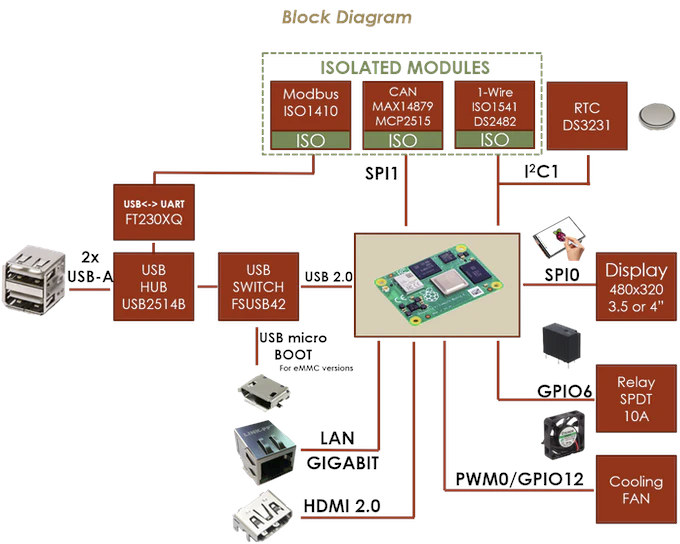Another day, another Raspberry Pi CM4 carrier board. Just like the TOFU carrier board, CM Hunter carrier board for Raspberry Pi CM4 targets industrial applications, but in a different way, as it focuses on industrial communication protocols with Galvanically-Isolated RS485/Modbus, 1-Wire, CAN 2.0B, and together with more common interfaces like Ethernet, HDMI, USB, etc…
CM Hunter specifications:
- Supported systems-on-module – Raspberry Pi Compute Module 4 / 4 Lite
- Industrial communication Interfaces
- Isolated RS485/Modbus (Profibus compatible) based on Texas Instruments ISO1410 controller
- Isolated CAN 2.0B based on Microchip MCP2515 controller and MAX14879 CAN transceiver
- Isolated 1-Wire via Maxim DS2482 I2C bridge
- Storage – MicroSD card slot
- Video Output – HDMI 2.0, optional 3.5-inch or 4-inch 480×320 LCD display with resistive touch connected over SPI
- Networking – Gigabit Ethernet RJ45 port and optional 802.11b/g/n/ac WiFi 5 plus Bluetooth 5.0 LE
- USB – 2x USB 2.0 ports, 1x micro USB 2.0 OTG port used to flash eMMC on Raspberry Pi CM4 module
- Expansion – 28-pin expansion header with 8x spare GPIOs (usable when LCD display not connected)
- Misc – DS3231M RTC, 10A/250V AC relay, optional PWM cooling fan
- Power Supply – 5V/2A via micro USB port
- Dimensions – 97×79 mm
Usually, it’s a bad idea to power a Raspberry Pi CM4 system via a 5V/2A USB adapter, but considering this board does not expose USB 3.0 or PCIe interfaces, and the load on the processor should be fairly low for this type of application, it may not be an issue.
The project will be open-source hardware with Eagle Schematic and PCB design files, custom libraries, BOM, part numbers, and custom Raspbian Image with all Python libraries and instructions released once the crowdfunding campaign is over.
The Raspbian (Raspberry Pi OS) image comes with the FBCP driver for the display, and a demo user interface based on Python 3.7, PySide2 5.12, and QML 5.12 to showcase and control the Modbus, CAN, 1-Wire interfaces respectively using python-can, modbus_tk, and Pyownet open-source libraries, as well as the RTC and the relay.

CM Hunter has just launched on Kickstarter with a 13,000 Euros funding target, or around $15,700 US. A pledge of $120 is asked for the carrier board without module, nor display. This includes free untracked shipping, but backers may want to add 7 Euros to add tracking for peace of mind. There’s no bundle with module, display, power supply, so all those would have to be purchased separately. The display is made by Waveshare, and you’ll find it on Amazon or Aliexpress for just under $30. Delivery is expected for June 2021.

Jean-Luc started CNX Software in 2010 as a part-time endeavor, before quitting his job as a software engineering manager, and starting to write daily news, and reviews full time later in 2011.
Support CNX Software! Donate via cryptocurrencies, become a Patron on Patreon, or purchase goods on Amazon or Aliexpress






